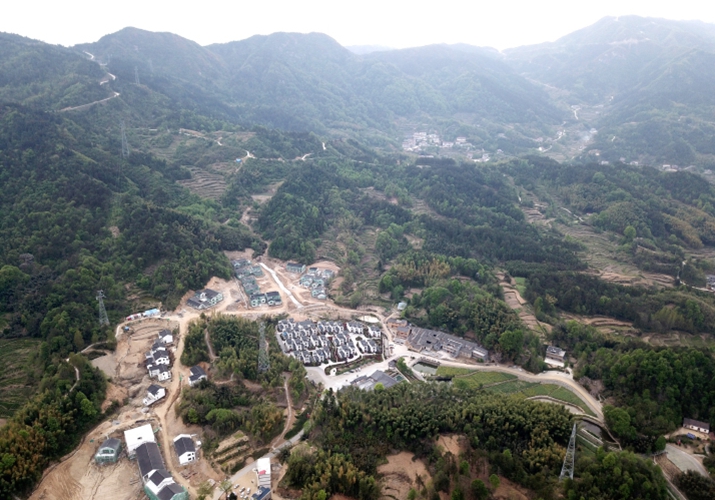Expat's eye: A village in the clouds
- By Michael Chick
 0 Comment(s)
0 Comment(s) Print
Print E-mail Beijing Review, March 29, 2021
E-mail Beijing Review, March 29, 2021

I'd read and heard so much about the miracle of poverty reduction in China that I had to go see it myself firsthand. That opportunity arrived when I went on an excursion to Dawan village in Anhui province, east China. I knew very little about the place. All I knew was that it sat 1,500 meters above sea level, and that President Xi Jinping visited it in 2016.
The high-speed train trip there was uneventful and the connecting train ran like clockwork. But what I took for granted was actually a huge leap for the county, Jinzhai. It used to be one of the poorest counties in China. Today a high-speed railway connects Jinzhai to the rest of the country, and it stepped out of poverty in April 2020.
The last leg of my journey was by road. I was expecting a dirt lane but the road was tarred and completely pothole-free.
The first sighting of the village reminded me of the Cameron Highlands in Malaysia. Both are at about the same elevation and have similar looking shophouses, their main produce being tea. I already felt at home.
The hotel was surprisingly modern with central heating, air-conditioning and free WiFi. Electricity ran 24 hours a day and the water was piping hot.
The first order of the day after the local sumptuous hotpot lunch was to visit the local school. The kids were simply amazing! To break the ice, I performed a simple magic trick, making a red handkerchief disappear to squeals of laughter.
I was amazed by the English vocabulary these kids possessed. I did a short Q&A, rewarding every individual with a pen for each correct answer.
Next stop, the bee farm. I was stunned to learn that the owner was an engineering graduate who had returned from the city to start this two-time award-winning farm. On top of that, he teaches the elderly in the village how to rear bees in their spare time. He added that this suits them well, as it yields high income while requiring very little upkeep beyond the initial setup. Plus, bees are really good for the environment.
A hop and a skip away from the beehives, he keeps goats and sheep, all providing a tidy and steady income.
We drove a good 20 minutes from the bee farm, further up into the hills, to reach a smokehouse constructed from mud and wood. Scores of poultry hung from the ceiling, being cured by the smoke, awaiting shipment to hungry buyers.
The residents of Dawan market their products out to the rest of the country and to the world via a stable and modern infrastructure, including Internet connection 24/7. In stark contrast to some Southeast Asian countries where Internet penetration is not even 40 percent, China's is close to 100 percent. This makes a huge difference for poverty reduction and national development.
The government buys up old derelict houses, and with those funds, people are able to build new homes for themselves. In addition, the government also provides seed money so that people can start new businesses. Enterprising entrepreneurs can add to those funds soft loans procured from friends and relatives to kick it off. The results have been stellar.
On my last day at Dawan, I bumped into a lady who had not only moved back here from Shanghai but was sending money to her father who was still living there. This I believe is proof of the pudding that Dawan has certainly left the shackles of poverty behind.
The author is a Malaysian living in Beijing.





